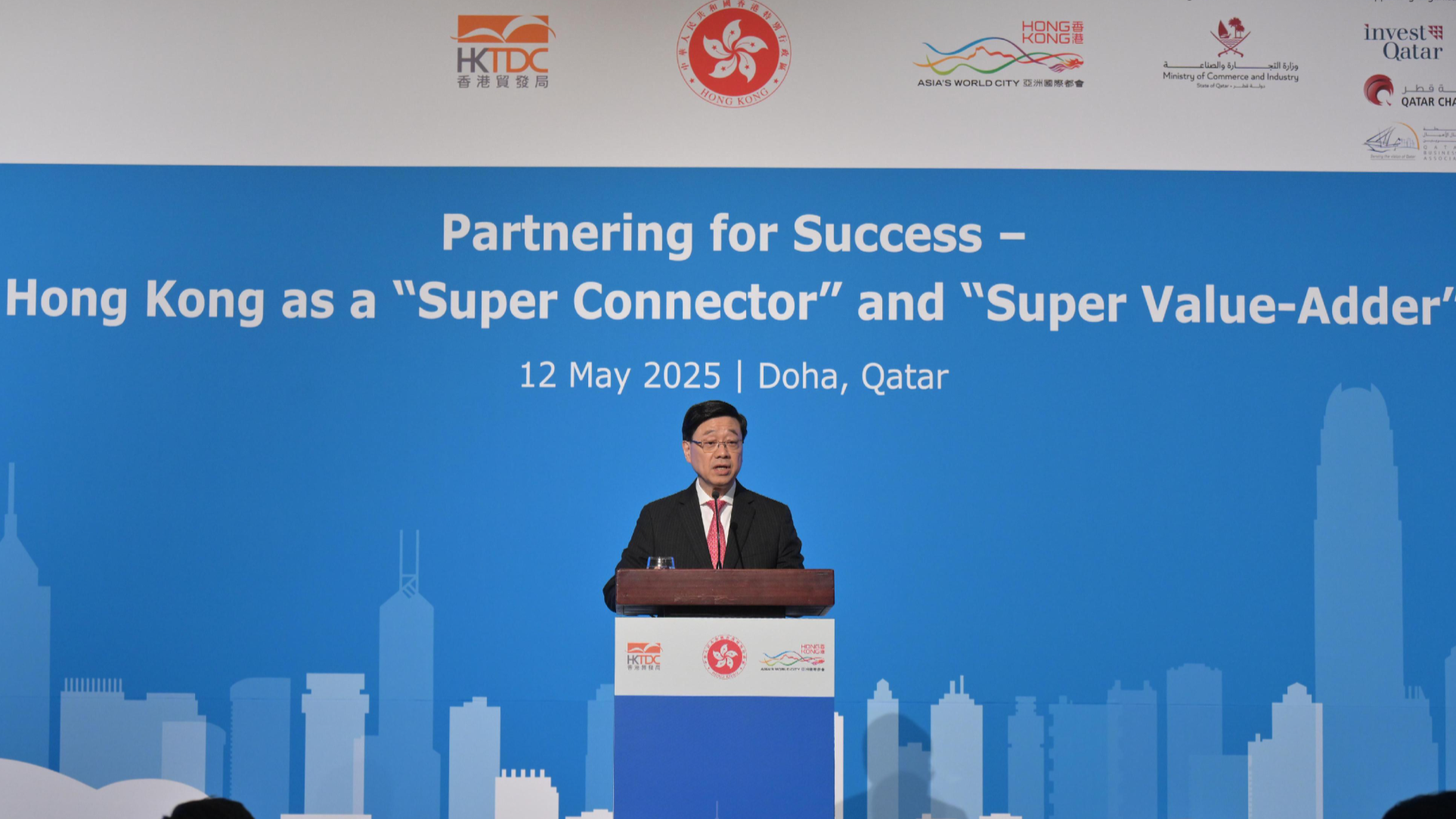
A senior Qatari business leader described Hong Kong Chief Executive John Lee Ka-chiu’s recent visit to Qatar — as part of his twonation Gulf tour — as a “significant milestone” in the city’s relations with Doha, paving the way for long-term strategic benefits and more structured collaboration across multiple sectors.
In an exclusive interview with China Daily following Lee’s Middle East trip to Qatar and Kuwait from May 10 through Thursday, Ali Bu Sharbak Al Mansori, acting general manager of the Qatar Chamber, commended the visit as “highly successful”. He cited the 35 memorandums of understanding signed during the visit, which would “help establish deeper and more structured collaboration across multiple sectors”.
“This visit represents a pivotal moment in the development of relations” between Qatar and the Hong Kong Special Administrative Region, he said. “As a highlevel engagement, it has elevated the partnership to new heights and underscored a shared commitment to enhancing cooperation in trade, finance, technology, and investment.
“The agreements signed are expected to generate long-term strategic benefits, opening new channels for joint ventures, data exchange, and market access. They provide a strong foundation for future collaboration between Qatari and Hong Kong institutions, as well as the private sector,” Al Mansori added.
ALSO READ: Kuwait seeks to deepen ties with Hong Kong, minister says
He said that while there is significant potential for deeper economic cooperation between Qatari and Hong Kong companies, challenges remain that need to be addressed to realize mutual benefits.
One such challenge, he said, is the difference in market scale between Qatar and Hong Kong. This disparity can sometimes lead to mismatched expectations, business models, or market approaches. In addition, there is limited understanding among some Qatari businesses of Hong Kong’s dynamic investment landscape.
However, Al Mansori added, these challenges can be overcome through the formation of strategic alliances, joint ventures, and knowledge-sharing partnerships.
“Lee’s visit has successfully laid a robust foundation for a new and more dynamic chapter in Qatar-Hong Kong relations. The focus now will be on the active implementation of these agreements, translating this momentum into tangible projects and partnerships that will serve the mutual interests of both economies,” he said.
According to the Qatar Chamber, trade between Qatar and the Hong Kong SAR witnessed remarkable growth in 2024, increasing 70 percent to reach 2.2 billion Qatari riyals ($604.4 million), compared with 1.3 billion riyals in 2023.
Meanwhile, Qatar’s trade with the Chinese mainland exceeded 80 billion Qatari riyals in 2024, with Qatari exports — primarily natural gas and refined oil products — accounting for 77.5 percent of that trade figure.
ALSO READ: Lee: Middle East visit is a success
In 2024, Qatar was the Hong Kong SAR’s third-largest trading partner in the Middle East, accounting for 6.6 percent of the city’s total trade with the region.
“By building long-term relationships with Hong Kong counterparts, Qatari companies can gain valuable market insights, and unlock new opportunities across Asia and beyond. Moreover, platforms such as business councils, investment forums, and joint exhibitions can play a key role in bridging gaps in knowledge and providing full awareness of the investment climate on both sides,” Al Mansori said.
Hong Kong is widely recognized for its excellence in innovation and high technology, and small and medium enterprises in the Middle East can greatly benefit from the city’s expertise in areas such as artificial intelligence, financial technology, and green technologies — sectors that are “increasingly vital to the sustainable growth and global competitiveness of SMEs in our region”, he said.
As one of the world’s leading financial hubs, Hong Kong offers numerous opportunities for Middle Eastern SMEs in financing and investment, Al Mansori said.
He also lauded Hong Kong’s status as one of the most efficient logistics and trade centers, capable of helping Middle Eastern SMEs streamline shipping, enhance supply chain efficiency, and facilitate the reexport of goods to other Asian markets.
“Overall, there are ample opportunities for collaboration between Hong Kong and Middle Eastern SMEs, particularly in sectors such as halal food and products, renewable energy, and the green economy,” Al Mansori said.
He added that Hong Kong also plays an active role in the Belt and Road Initiative, which closely aligns with the interests of many Middle Eastern countries that are also participants in this global development initiative. “This opens the door for collaboration in sectors such as infrastructure, logistics, energy, and trade, fostering mutually beneficial investment partnerships as Hong Kong is also emerging as a global innovation and technology hub,” Al Mansori said.
“With significant public and private sector investment in areas like fintech, artificial intelligence, biotechnology, and green technologies, it presents exciting prospects for Middle Eastern investors seeking to diversify into knowledge- based, future-oriented sectors,” he added.


